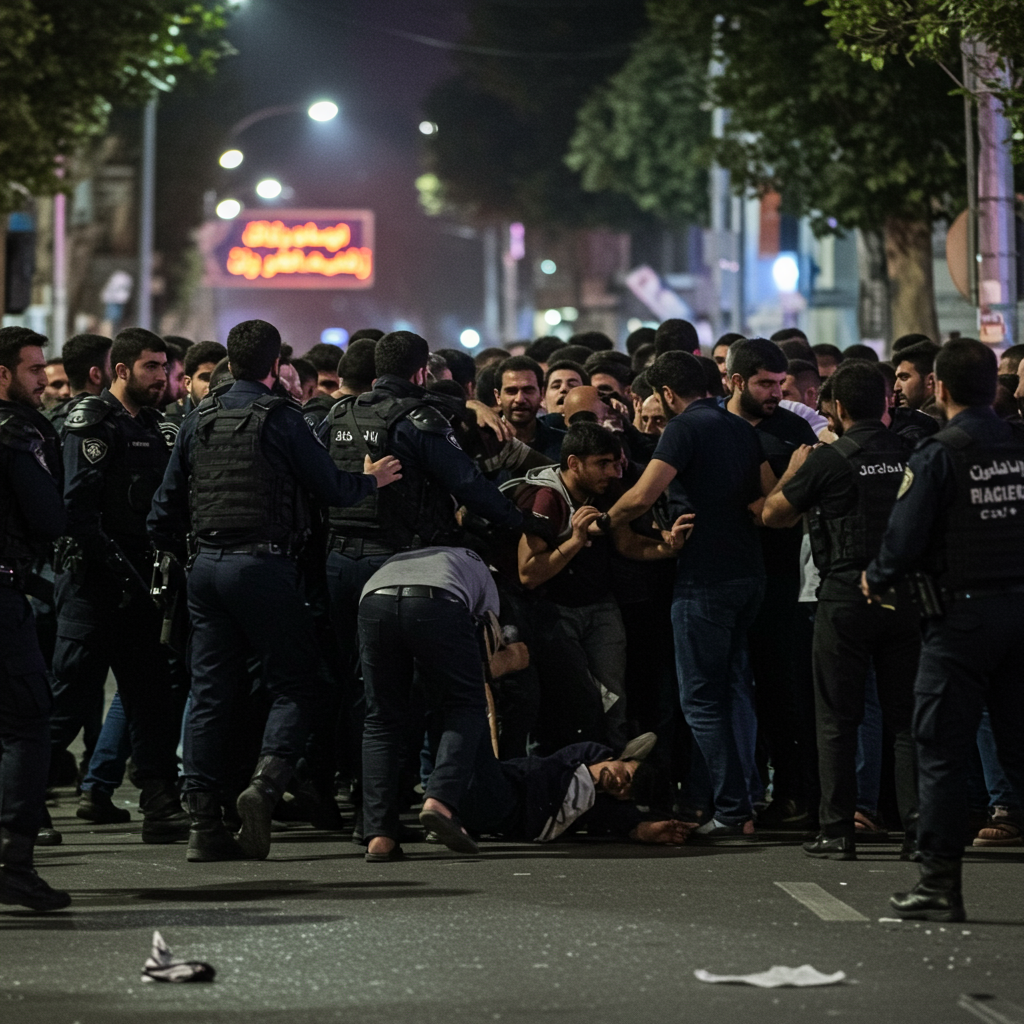During a pivotal meeting at the White House, former President Donald trump hosted Israeli Prime Minister Benjamin Netanyahu. While discussions reportedly included efforts to secure a ceasefire and hostage release in the Gaza Strip, a far more sweeping and controversial proposal emerged: a vision for the United States to effectively “take over” and redevelop Gaza, coupled with the permanent resettlement of Palestinians currently living there to other locations. This ambitious, yet highly contentious, plan quickly overshadowed the initial diplomatic objectives and drew immediate, widespread criticism from regional allies and domestic observers.
A Radical Vision for Gaza’s Future
President trump’s proposal paints a dramatic picture of post-conflict Gaza. He suggested the U.S. should assume “ownership” of the territory to oversee its complete reconstruction. The vision involves leveling destroyed buildings, clearing unexploded ordnance, and creating a transformed economic zone. Trump described this future Gaza as potentially becoming the “Riviera of the Middle East,” a symbol of economic development and a place for “world people,” including Palestinians, to reside.
Integral to this redevelopment plan is the idea that the current Palestinian population should resettle permanently outside of Gaza. Trump argued that Palestinians have endured a “miserable existence” and should not return to the current rubble-strewn landscape. Instead, he proposed finding “beautiful area[s]” elsewhere where they could live safely in “nice homes.” He hinted that “rich” nations should potentially fund this mass relocation effort. When pressed on the potential need for U.S. military involvement to implement such a plan, Trump indicated the U.S. would do “what is necessary,” suggesting a willingness to deploy troops. He framed this “long-term ownership position” as a path towards “great stability” in the region, claiming unnamed Middle Eastern leaders had praised the concept, although aides reportedly knew about the announcement in advance.
Context of the High-Stakes Meeting
The meeting between Trump and Netanyahu marked the first time Trump hosted a foreign leader during his hypothetical second term, underscoring the perceived importance of the U.S.-Israel relationship. The visit occurred as delicate indirect talks aimed at extending a ceasefire between Israel and Hamas and securing the release of remaining hostages were ongoing, with Netanyahu confirming a delegation would travel to Qatar for continued negotiations. Trump’s dramatic redevelopment and resettlement proposal is widely seen as complicating these fragile diplomatic efforts, which currently center on surging humanitarian aid and reconstruction supplies within a temporary truce framework. Notably, Trump aides reportedly view a 5-year timeline for reconstruction, discussed in truce agreements, as unviable, perhaps providing context for his call for a more radical overhaul under U.S. control.
The visit also provided a platform for Trump to revisit past policy decisions. He referenced his previous decision to attack Iranian nuclear sites and then broker a ceasefire between Israel and Iran, an action that reportedly divided some of his most ardent supporters who felt it contradicted his pledge to avoid new wars. Trump also controversially asserted that the October 7th attack on Israel “would never have happened if I were president,” a claim made despite Prime Minister Netanyahu having previously praised the current administration’s support following the attack. In a separate context, Trump also recently expressed dissatisfaction with the situation in Ukraine following a call with Russian President Vladimir Putin, indicating his broad engagement across multiple complex foreign policy fronts.
Widespread Opposition and Alarm
The idea of permanently relocating Palestinians from Gaza, even under the guise of redevelopment, triggered immediate and forceful condemnation from various corners.
Arab Nations Voice Strong Rejection
Leaders across the Arab world, particularly those whose support would be crucial for regional stability and broader peace initiatives, vehemently rejected the proposal. Saudi Arabia, a key potential partner for Israeli normalization, stated its “firm, steadfast and unwavering position” supporting an independent Palestinian state and rejecting any attempts to displace Palestinians from their land. Egyptian President Abdel Fattah el-Sisi and Jordanian King Abdullah II had previously dismissed similar suggestions, citing the grave risk to Mideast stability and the potential for the conflict to expand if populations were forcibly moved. Jordan already hosts over 2 million Palestinian refugees, making up a significant portion of its population, and is unwilling to absorb another large influx, even with financial support. Egypt, under President Sisi, has security concerns related to Hamas, making the idea of accepting a large Gazan population highly undesirable.
Hamas and Critics Condemn Proposal
Hamas officials dismissed Trump’s remarks as “ridiculous and absurd,” warning that such ideas could “ignite the region.” They labeled the proposal “racist” and claimed it aimed to “eliminate the Palestinian cause.” Domestically, U.S. Democrats reacted with alarm. Senator Chris Murphy characterized the proposal as suggesting a “U.S. invasion of Gaza,” warning of potential costs in American lives and further destabilization. While some Republicans, like Senator Lindsey Graham, expressed skepticism about public support for such a military venture, they indicated openness to exploring the idea.
A Setback for Broader Diplomacy?
Analysts suggest that Trump’s proposal to compel Palestinian civilians to leave Gaza could significantly undermine his stated diplomatic goals in the Middle East. A major priority for Trump’s foreign policy team has reportedly been the expansion of the 2020 Abraham Accords, particularly achieving normalization of relations between Israel and Saudi Arabia. However, Saudi Arabia has made it clear that normalization hinges on concrete progress toward an independent Palestinian state with East Jerusalem as its capital. The permanent removal of Palestinians from Gaza would be seen by Riyadh and other Arab states as a fundamental rejection of Palestinian statehood aspirations. This makes the relocation proposal fundamentally incompatible with the goal of Israeli-Saudi normalization, potentially derailing a cornerstone of Trump’s regional strategy before serious negotiations can even begin. The idea aligns more closely with views held by Israeli ultranationalists who favor annexing Palestinian territories.
Challenges and Uncertainties Ahead
Implementing a plan involving U.S. “ownership” and the forced permanent relocation of hundreds of thousands of Palestinians faces monumental practical, political, and humanitarian challenges. The scale of reconstruction required in Gaza is vast, with some estimates suggesting timelines far longer than those typically discussed in temporary truce agreements. Funding remains unclear, despite Trump’s suggestion that “rich” nations should contribute. Crucially, there is currently no regional or international consensus or support for the resettlement idea; rather, there is overwhelming opposition. The plan’s feasibility is highly uncertain, especially given the deep-seated Palestinian connection to their land and the political will required from host nations who have already explicitly rejected the concept.
For Netanyahu, the White House visit provided a boost amidst his sagging popularity in Israel and ongoing legal challenges. Being seen alongside a figure popular among many Israelis likely offered a political benefit. Netanyahu praised Trump’s willingness to “say things others refuse to say” and think “outside the box,” suggesting he viewed the controversial proposals as potentially transformative, even as his government continues engaging in indirect talks focused on ceasefire and hostage exchanges under a different framework.
Frequently Asked Questions
What is the main idea behind Donald Trump’s recent proposal for Gaza?
During a meeting with Israeli Prime Minister Netanyahu, Donald Trump proposed that the United States should take “ownership” of the Gaza Strip to oversee its reconstruction. Central to his plan is the idea that Palestinians currently living in Gaza should be permanently resettled elsewhere, describing a future where Gaza is rebuilt into a prosperous area potentially resembling the “Riviera of the Middle East.”
How does Trump’s Gaza plan relate to current ceasefire negotiations?
Trump’s proposal adds a highly complex and controversial layer to ongoing efforts. Current negotiations between Israel and Hamas, often mediated by other nations, focus on achieving a ceasefire and hostage release, typically involving temporary truces and plans for humanitarian aid and reconstruction within Gaza. The idea of permanently relocating the population and implementing long-term U.S. control is seen as potentially complicating or undermining these existing diplomatic tracks.
Why are Arab nations and critics strongly opposing the idea of relocating Palestinians from Gaza?
Arab nations like Saudi Arabia, Egypt, and Jordan vehemently oppose the resettlement plan. They view it as a threat to regional stability, a potential precursor to Israeli annexation of Palestinian territories, and a violation of Palestinian rights. Egypt and Jordan also face practical concerns regarding absorbing large refugee populations, while Saudi Arabia explicitly states that progress towards an independent Palestinian state is a prerequisite for normalizing relations with Israel, a goal the resettlement plan directly contradicts. Critics also raise concerns about the humanitarian implications and the potential for increased conflict.
The audacious nature of Trump’s “Trump Gaza Plan” has ignited a global debate, posing significant questions about the future of the region, the feasibility of such radical ideas, and the impact on already complex diplomatic efforts. The path forward for Gaza, ceasefire talks, and broader Middle East peace initiatives remains uncertain in the wake of this controversial proposal.



